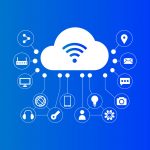Gone are the days when machines used to be standalone, dumb entities, which served only one purpose for the industrialists: To produce. With the Industry 4.0 revolution sweeping manufacturing, retail, wholesale, transportation, agriculture, and more industries, machines, and tools are becoming intelligent, connected, ROI-focussed, and turbocharged with insights and data.
Welcome to the exciting world of Industrial IoT or IIoT, which is changing and disrupting entire ecosystems with futuristic ideas and solutions.
What Is Industrial IoT?
The Industrial Internet of Things (IIoT) has emerged as a revolutionary technology that integrates sensors, devices, and machines in industrial settings to enable efficient data collection, analysis, and decision-making.
This interconnected network of devices and systems has the potential to transform industries by optimizing operations, improving productivity, reducing costs, and enhancing overall efficiency.
You can also read – What Is App Monetization? What Are The Best Strategies For Generating Maximum Income From App?
In this blog, we will delve into the major challenges faced by Industrial IoT applications and explore potential solutions to overcome them. We will also share which industries are deploying Internet of Things applications, but first, let’s understand more about the scope and growth of Industrial IoT.
The Growth of Industrial IoT
The adoption of Industrial IoT has been on the rise, fueled by the increasing need for automation, connectivity, and data-driven insights in various industries. Valued at $400 billion right now, the global Industrial IoT market is projected to reach $933.62 billion by 2025, growing at a compound annual growth rate (CAGR) of 26.9%, as billions of machines, devices & tools are getting interconnected and intelligent across multiple industries.
These figures highlight the immense potential and popularity of Industrial IoT applications across diverse sectors, and the popularity of mobile app development for IoT.
Industries Benefitting from Industrial IoT
Numerous industries are embracing Industrial IoT applications to drive efficiency and optimize their operations with tailored solutions.
You can also read – How to Leverage AI in IoT App Development for Smarter Automation
Some of the prominent sectors leveraging IIoT include:
- Manufacturing
- Energy and utilities
- Transportation and logistics
- Healthcare
- Agriculture
- Smart cities
Let’s explore how Industrial IoT applications work and how they can be classified.
How Industrial IoT Applications Work
Industrial IoT applications rely on a network of interconnected devices, sensors, and machines, which collect, analyze, and share data to enable intelligent decision-making. These applications typically follow the following workflow:
Data Collection: Sensors and devices deployed in the industrial environment collect data related to various parameters such as temperature, pressure, humidity, vibration, and energy consumption.
Data Transmission: The collected data is transmitted to a centralized platform or cloud infrastructure through wired or wireless communication protocols, such as Wi-Fi, Ethernet, or cellular networks.
Data Storage and Analysis: The data is stored securely and analyzed using advanced analytics techniques like machine learning and artificial intelligence. This analysis helps in identifying patterns, trends, and anomalies, leading to actionable insights.
Decision-Making and Control: Based on the insights derived from the data analysis, decisions can be made to optimize processes, predict maintenance requirements, improve quality, and enhance overall operational efficiency.
You can also read – IoT App Development For Industrial Automation: 5 Stunning Case Studies & Benefits
Classification of Industrial IoT Applications
Industrial IoT applications can be classified into several categories based on their specific use cases and functionalities. Some common classifications include:
Asset Tracking and Management: These applications enable real-time monitoring and management of industrial assets, such as machinery, equipment, and tools, ensuring optimal utilization and maintenance.
Predictive Maintenance: By leveraging IIoT, predictive maintenance applications analyze data from sensors to identify potential equipment failures in advance. This helps organizations schedule maintenance activities proactively, minimizing downtime and reducing costs.
Supply Chain and Logistics Optimization: IIoT applications in this category focus on streamlining supply chain operations, improving inventory management, optimizing logistics routes, and enhancing overall visibility and efficiency.
Environmental Monitoring: These applications employ IIoT sensors to monitor and control environmental parameters, such as air quality, temperature, and humidity, ensuring compliance with regulations and creating healthier work environments.
Energy Management: Industrial IoT applications for energy management monitor and optimize energy consumption, enabling organizations to reduce costs, enhance sustainability, and achieve energy efficiency goals.
Challenges of Industrial IoT Applications
While the benefits of Industrial IoT applications are substantial, they also come with unique challenges that need to be addressed for successful implementation. Some of the major challenges include:
Security and Privacy Concerns: Industrial IoT applications involve sensitive data, making them vulnerable to cybersecurity threats. Ensuring robust security measures, such as encryption, access control, and secure communication protocols, is crucial.
Scalability and Interoperability: As the number of connected devices and data volume increases, scaling Industrial IoT applications becomes challenging. Interoperability issues between different devices, protocols, and platforms further complicate the integration process.
Data Management and Analysis: Handling and analyzing large volumes of data generated by Industrial IoT applications require advanced data management techniques, including data storage, processing, and real-time analytics.
You can also read – How is IoMT Revolutionizing the Healthcare Industry?
Legacy System Integration: Many industries still rely on legacy systems that lack compatibility with modern IIoT technologies. Integrating these systems with new IoT devices and platforms can be complex and require careful planning.
Solutions to Industrial IoT Challenges
A robust IoT development company like ApStudio can offer these solutions for eradicating the problems:
Robust Security Measures: Implementing end-to-end encryption, secure authentication mechanisms, and regular security audits can safeguard Industrial IoT applications from cyber threats.
Standardization and Interoperability: Promoting industry-wide standards and protocols ensures seamless integration between devices, platforms, and systems, allowing for easy scalability and interoperability.
Advanced Data Analytics: Leveraging big data analytics, machine learning, and artificial intelligence techniques helps extract valuable insights from massive data sets, enabling predictive maintenance, process optimization, and proactive decision-making.
Legacy System Upgrades: Upgrading legacy systems or utilizing gateways and adapters can bridge the gap between old and new technologies, enabling integration and data exchange.
The Industrial Internet of Things offers tremendous opportunities for industries to transform their operations, optimize processes, and enhance productivity. However, embracing Industrial IoT applications also presents significant challenges.
By implementing robust security measures, ensuring interoperability, adopting advanced data analytics techniques, and addressing legacy system integration, these challenges can be overcome.
As organizations continue to harness the power of Industrial IoT, the future holds great potential for innovation, efficiency, and growth in various industrial sectors.
Connect with our expert Industrial IoT Catalysts at AppStudio, a leading IoT app development company, and explore how this new technology can benefit and turbocharge your business, and how we can unleash 360-degree transformation and disruption by leveraging the power of technology and ideas.
Schedule a no-obligation consulting session for IoT app development services right here.




